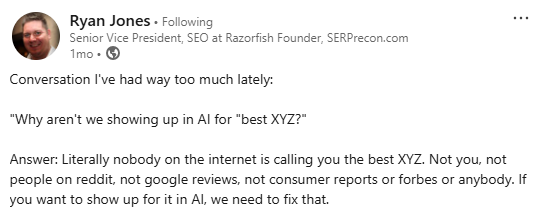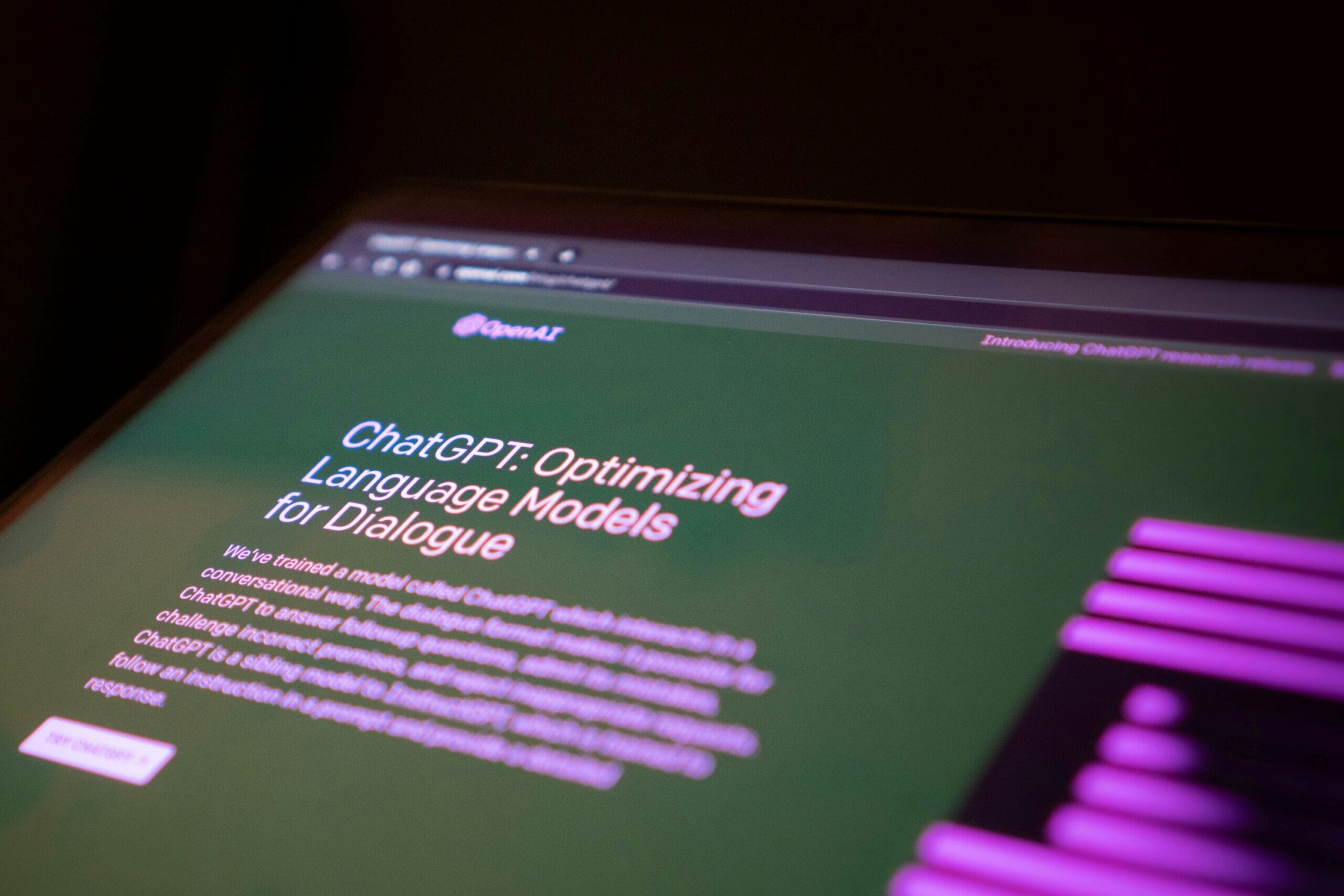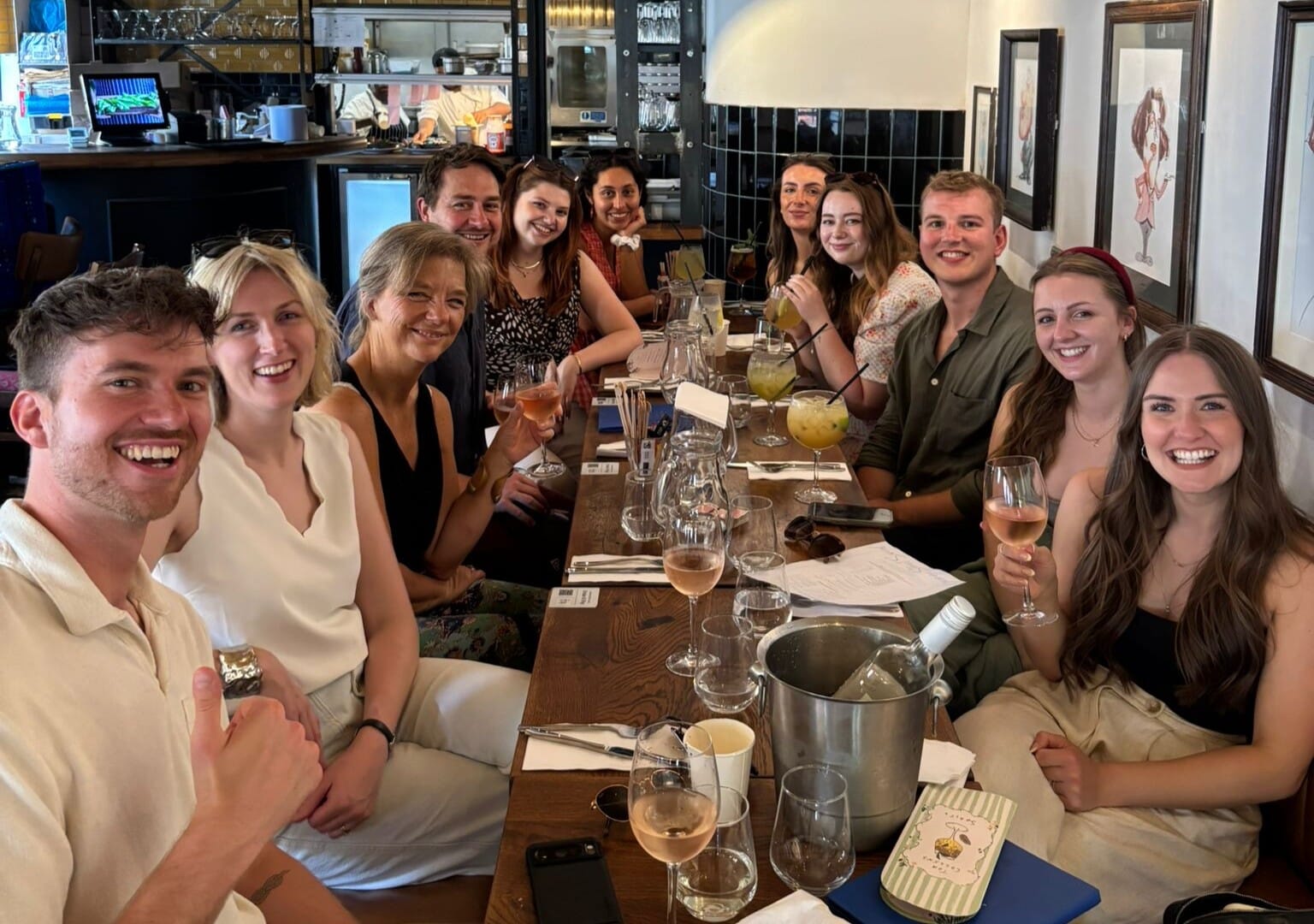It’s a massive opportunity for PR.
Where Google was originally built on links, AI search is built on language. Large language models, vector embeddings, semantic similarity… AI works by analysing relevant language cited in reputable sources. And funnily enough, this is exactly what PR (/digital PR) can deliver.
Imagine you work for a pub in Cheltenham. You want to rank for AI prompts like “what are the best pubs in Cheltenham”. If you’re the only person saying your pub is great, you probably won’t get recommended. Which makes perfect sense. Because how can it trust that you really are the best? You’re hardly impartial.
But what if lots of well-respected publishers, influencers and reviewers say you’re the best pub in Cheltenham? Then there’s a very good chance that AI search will recommend you too. Which also makes perfect sense, because there’s plenty of evidence to back it up.
I think the LinkedIn post below from Ryan Jones sums it up perfectly.

So all in all, this is an incredibly exciting time for the PR and digital PR industry and for those who use it. Reputation and relevance are our bread and butter. They’re what we do. We control how brands are perceived, the language that’s used to describe them. We engage audiences, influence sentiment and build brands in the places that matter.
For some, PR has historically been (wrongly) seen as a ‘nice-to-have’. The impacts of our work are sometimes harder to measure than other channels, so some people just didn’t bother. But this shift in search changes all of that. PR is now being recognised widely for what it’s always been: an essential tool in every marketer’s toolkit.
Is brand visibility in Google’s AI Mode and AI Overviews crucial for reaching your audience? You need PR.
Is being featured in podcasts crucial for reaching your audience? You need PR.
Is being recommended by industry influencers crucial for reaching your audience? You need PR.
Wherever your brand needs to be visible, there’s a good chance that PR could get you there.
Do you need to improve your brand’s visibility in this new era of search? We can help. Get in touch with susannah@energypr.co.uk to find out how.










